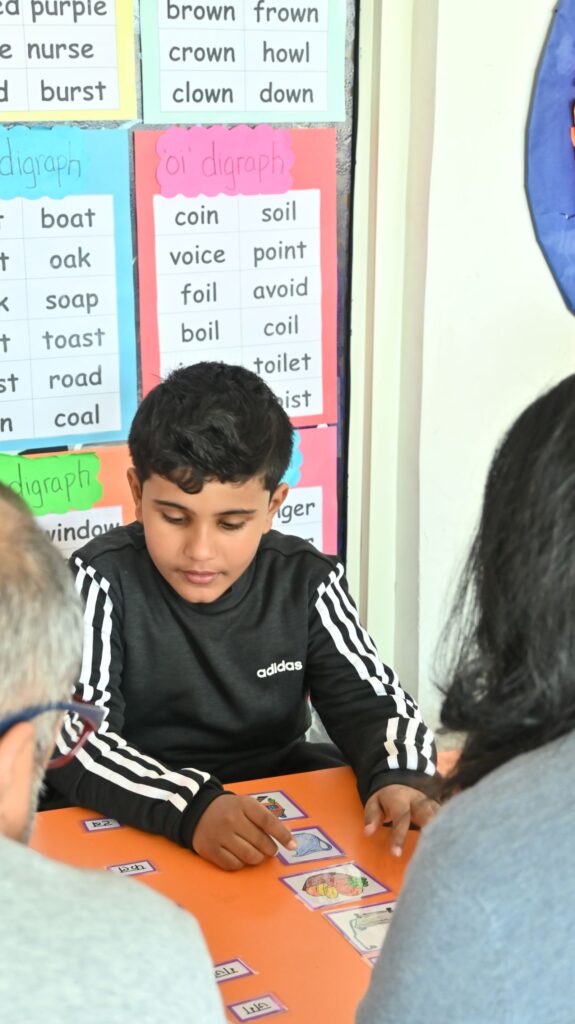By Neha Singh
At Vega Schools, we recognize the importance of discipline in molding a child’s behavior and fostering character development. While disciplining children poses challenges for many parents, particularly in establishing boundaries and consequences, we prioritize maintaining a positive and nurturing environment. Here, we share insights into how we implement effective discipline strategies within our own Vega Schools community.
Establishing Clear Boundaries
Setting clear boundaries is the foundational step in effective discipline. Children must understand expectations and recognize behaviors deemed unacceptable. At Vega, we uphold respect for each student in the class, ensuring that everyone’s rights to their feelings are acknowledged, and appropriate expressions are encouraged, thus demonstrating healthy boundaries for children.
Firmness with Fairness
When a child breaches boundaries, responding with firmness and fairness is crucial. We prioritize consistency and fairness for effective classroom management, emphasizing responses that align with the situation and aid the child in comprehending the consequences of their actions.
Consistent Consequences
Consequences play a pivotal role in discipline, necessitating meaningful and consistent application. At Vega, we select consequences tailored to specific behaviors, aiming to facilitate the child’s learning from their mistakes.
Harnessing Positive Reinforcement
Positive reinforcement serves as a potent tool in behavior shaping. Praising positive behaviors and adherence to rules is a norm at Vega, where rewards such as Free Play Time are granted to reinforce good conduct.

Maintaining Emotional Regulation
Discipline often involves navigating stress and emotions, underscoring the importance of maintaining composure and emotional regulation. We advocate against physical punishment or yelling, recognizing their potential harm to the parent-child relationship and the promotion of negative behaviors.
Furthermore, the fundamental principles of effective discipline, including setting boundaries and maintaining consistency, are crucial for fostering a positive and disciplined environment. Here’s why they are pivotal and contribute to a conducive learning atmosphere:
Clarity and Understanding Clearly defined boundaries enable individuals to comprehend expectations, providing a framework for behavior and actions. Consistency in enforcing boundaries reinforces the understanding that rules are consistently applied.
Building Trust and Respect for boundaries fosters trust among individuals, indicating that their needs and limits are respected. Consistent enforcement of boundaries cultivates a sense of fairness and equity, essential for building respect.
Learning and Growth Boundaries offer learning opportunities, delineating acceptable behavior and guiding individuals towards appropriate conduct. Consistent consequences for boundary violations facilitate understanding of cause and effect, fostering personal growth and learning from mistakes.
Studies in psychology underline the correlation between effective parenting practices and positive child outcomes, reinforcing the significance of clear rules, positive reinforcement, and emotional regulation. At Vega, we prioritize instilling discipline as an ongoing process, requiring patience, consistency, and love.
In conclusion, discipline, when approached consciously, empowers children to regulate their behavior and cultivate positive character traits. At Vega, we understand the transformative power of discipline, nurturing it within our learners to drive personal growth and success in various spheres of life.
Vega Schools offers holistic education to children in Delhi NCR and is rated among the top Schools in Gurgaon. Its modern infrastructure, facilities, and experienced teachers are a big asset to the learning & development of students, be it for Nursery, Primary or Senior children making Vega Schools the best schools in Gurgaon. For information about admission please visit the Vega Schools campuses in Sector 48 and Sector 76 Gurugram.
